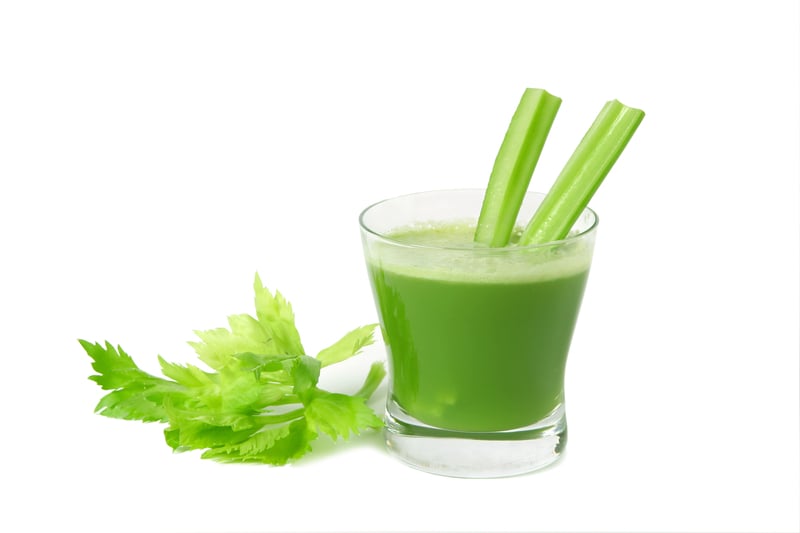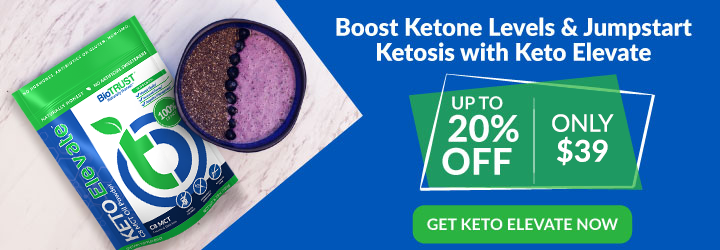The 14 Biggest Lies & Myths About Weight Loss Debunked

Weight loss. It’s not just a health and fitness goal that many people chase; it’s an industry worth a record $72 billion, and nearly half of Americans have put in the effort to drop some “lbs” in the last year. With so much desire and incentive, it shouldn’t come as any surprise that there’s a lot of confusion (and frustration) on how to actually enjoy real, lasting results. And you may be surprised to learn that even if you consider yourself well informed, you probably believe some myths about weight loss that are simply bogus.
Of course, some weight-loss myths may seem obvious. Others, however, are a bit more stealth but can be just as damaging to your weight-loss success. So, let’s get right into debunking the top 14!
14 Biggest Myths About Weight Loss Debunked
Myth #1: Cabbage & Cabbage Soup
Sure, if all you’re eating all day, every day (at least for a week) is cabbage soup, you’ll probably drop some weight. After all, cabbage is low in calories, high in water, and generally, a healthy food. But if that’s all you’re eating, you’ll also likely experience lethargy and fatigue, get bloated and gassy, and be on your way to losing precious, calorie-burning muscle mass (since cabbage doesn’t contain much, if any, protein). That means, when you return to eating like “normal,” you’ll likely be setting yourself up for rebound weigh gain. Enjoy cabbage as part of a healthy diet, but skip the cabbage soup diet or diets that focus on any one single “miracle” food.
Myth #2: Master Cleanse is Key
Whether it’s a juice fast or a “master cleanse” (which has you living off a “lemonade” concoction of water, lemon juice, maple syrup, and cayenne pepper for ten days or more), you may get some quick “results,” but again, these diets are highly restrictive and far from sustainable. Plus, there’s strong evidence that detox diets don’t actually help the body detox.
The body naturally detoxes and has several organs fully devoted to the process—whether you’re drinking some juice concoction or not. While fasting can promote the body’s ability to detoxify, consuming a nutrient-dense diet that includes a diverse array of whole, minimally processed foods can provide copious nutrients and non-nutrients that support the body’s natural detoxification pathways.
Worse, these types of cleanse diets can reinforce bad eating habits, promote dysfunctional eating, and may lead to or exacerbate a poor relationship with food and your body.
Myth #3: Only Eat Grapefruit
There’s no doubt that grapefruit is a healthy food, and there is evidence to support the weight-loss benefits of consuming grapefruit from a 12-week pilot study some 15 years ago, which found folks who ate grapefruit before meals lost up to 3.6 pounds. It seems that eating the low-energy-dense grapefruit before a meal helped the participants eat less at the ensuing meal; in other words, it helped them drop calories drastically.
Again, restricting calories drastically may help you lose weight in the short term, but it can also lead to a lack of energy, intense hunger, and weight that rebounds quickly. Go ahead and eat grapefruit if you like it. (It is pretty delicious!) But don’t believe it’s a miracle no matter how long this popular diet sticks around.
Myth #4: Try Celery Juice
There’s nothing wrong with celery juice if you enjoy it. In fact, celery juice does provide some serious nutrition, including vitamins A, C, K, antioxidants, and potassium. But it’s not the miracle juice often proclaimed. In fact, you’re better off eating the entire celery stock, as it provides all the nutrients plus fiber and bulk to help you stay fuller for longer.
Myth #5: Go Vegan
There are many healthy (and environmental) benefits of a well-designed plant-based diet. The key, however, isn’t eating “plant based” or “vegan,” but rather following a well-designed diet. After all, French fries, Dorito’s, soda, and beer are all vegan, but they won’t help you lose weight. In addition, if you aren’t seeking out high-protein vegetarian food sources, it’s easy to end up eating a very carb-heavy diet, which can lead to insulin resistance, and subsequently, a host of metabolic derangements, not to mention fat gain.
Again, vegan and vegetarian diets can be very healthy and well-rounded. But just because you’ve gone vegan doesn’t mean you’re following a healthy diet that will help you lose weight. You need to consciously choose foods that balance blood sugar levels, keep you full, and provide a mild to moderate calorie deficit if you want to lose weight.
Myth #6: Become a Carnivore
Again, there are plenty of benefits of eating a high-protein diet, but if all you eat is meat and animal products, forgoing all plant foods, such as vegetables, fruits, legumes, grains, nuts, seeds, coffee, and tea, you’ll be giving up necessary nutrients and phytonutrients and setting yourself up for certain micronutrient deficiencies, including vitamins, minerals, antioxidants, etc.
You also won’t be getting any fiber, which can lead to constipation and affect the gut microbiome (potentially, in a negative way). Also concerning for some, because the diet tends to be high in saturated fat, it can pose a problem for a subset of individuals who may be genetically susceptible to not tolerate relatively high levels of saturated fat very well. In those folks, too much saturated fat may increase the risk of heart disease, high blood pressure, kidney disease, and even certain types of cancer.
The carnivore diet is overly restrictive, difficult to follow, and just not necessary—at least for the majority of people and/or for extended periods of time. You’re much better off following a balanced diet.
Myth #7: Cut Out Carbs Completely
How often do you hear nowadays that if you want to lose weight, you need to cut carbs? Yes, cutting carbs—especially refined carbs and sugars—may help you lose weight even if you aren’t consciously counting calories. But not all carbs are created equal, and whole-food carbs like those found in starchy vegetables (e.g., potatoes and yams), legumes, whole grains (like quinoa, oats, and buckwheat), and fruit can provide long-lasting energy and plenty of nutrition, and they can also help keep you feeling satiated, so you’ll stick to eating healthier.
Cutting back on carbs (and eating more protein) can help decrease calories and help regulate blood sugar levels, and many people do well on a low-carb or even ketogenic diet. But cutting out carbs completely isn’t necessary for weight loss and may not be the best diet solution for you.
Myth #8: Fat Makes You Fat
By now, most people realize that while fat is a calorie-dense food, as long as calories are in the healthy range, it does not make you gain weight and can even help you lose weight by keeping you satisfied for longer. Plus, healthy fats are needed for the body to function properly.
And surprisingly, many fat-free or low-fat options provide the same calories as their counterparts—with the addition of sugars, artificial additives, etc., that likely aren’t as healthy. You’re better off choosing to eat smaller portions of full-fat versions of your favorite foods.
Myth #9: Give Up Gluten
If you have celiac disease, a wheat allergy, or are gluten intolerant, then by all means, please avoid gluten and all gluten-containing foods. But if you’re trading in your baked goods (like cookies, cakes, crackers, etc.) for gluten-free versions expecting to drop some pounds or a pant size, you’re likely going to be very disappointed. You’re still getting overly processed, nutrient-poor foods. And, they’re likely to add even more sugar and additives than the original.
Instead of looking for “gluten-free” on the label, strive to eat real, whole foods. Of course, there are great gluten-free options as well—especially if you’re making your own. Going gluten-free just isn’t the miracle many proclaim.
Myth #10: C is For Cookie
Oh, how wonderful it would be to eat cookies all day and still lose weight. Of course, these cookie diets typically depend on highly processed pre-packaged cookies that are supposedly high in fiber and protein combined with artificial sweeteners and loads of preservatives (and that taste more like overly sweetened cardboard than a cookie). What’s more, there’s no evidence that these diets actually work. And they could be detrimental to a healthy lifestyle, as we need a variety of healthy foods to thrive.
An occasional healthy, high-protein cookie can be part of a quality diet—especially when you’re on the go. But living off of packaged foods, even if they have fantastic marketing, isn’t the path to long-term success. Eating real, whole foods should be goal number 1.
Myth #11: Only Fruit vs. No Fruit
Many diet myths are contradictory. For example, some diets recommend eating only fruit (e.g., the Beverly Hills Diet or fruitarians), while others recommend avoiding all fruits. Which one is best? Neither!
While it’s a good idea to limit added refined sugars, avoiding all fruit isn’t necessary. Fruit can be a healthy part of the diet as it provides vitamins, minerals, phytonutrients; plus, it is naturally delicious.
But fruit can’t provide all of the nutrients (e.g., protein, essential fatty acids) the body needs to heal, repair, and maintain overall health. A fruit-only diet can lead to weakened immunity, decreased bone density, increased risk of injury, anemia, fatigue, and hair loss.
Myth #12: Go Hungry
If you’re going to lose weight, you’re going to go hungry, right? No. In fact, getting overly hungry can backfire as your blood sugar levels drop and you find yourself shoveling any food into your body to fill the hole. It also can lead to nutrient deficiencies, cravings, and disordered eating.
Calories equal energy, and if you don’t eat enough to function, your body can make metabolic adaptations so that you burn fewer calories (without even thinking about it), which may lead to weight gain in the long run.
Some diets drop calories to dangerously low levels. For example, the HCG (Human Chorionic Gonadotropin) Diet combines a prescription drug for infertility with a diet of just 500 to 800 calories per day. Side effects can include electrolyte imbalance, fatigue, confusion, irregular heartbeat, micronutrient deficiencies, and the development of blood clots. Of course, you can only lower calories for so long, and once you start eating normally again, the weight comes back.
Instead, create a modest calorie deficit and choose foods that are satiating, nutrient-dense, and that you enjoy and fit your lifestyle. You’ll then be more likely to stick to your diet for the long term to enjoy real, lasting weight-loss success! Plus, you won’t have to depend on dwindling willpower to stay on track.
Myth #13: Go to Extremes To Get Weight Loss Goals Started
Some dieters become so desperate to lose weight that they forget the goal is actually to improve health, and they resort to dangerous and even potentially deadly measures. For example, some people have taken pills to make themselves sleep rather than eat, yet just as there are dangers of too little sleep, there are also dangers of too much—especially when sleep is artificially induced with medication.
Other people have swallowed juice-soaked cotton balls, which can lead to choking, eating disorders, and intestinal blockage that can lead to internal organ damage and even death. Other folks have gotten patches sewn onto the tongue, so it’s painful to eat solid foods, which is dangerous, not FDA approved, and unrealistic to maintain.
Some folks have even consumed parasites (such as tapeworms) to lose weight. Parasites, though, can be difficult to get rid of as they lay eggs in the body, and they can also escape the digestive system, leading to serious health problems. Tapeworms, for example, can lead to not-so-pleasant effects like abdominal pain, diarrhea, nausea, fever, weakness, increased food cravings, and it can also block bile ducts, the appendix, and pancreatic ducts, and lead to brain and nervous system complications (such as dementia and vision problems), and interfere with the function of organs, including the liver and lungs. It can even lead to death.
There’s no reason to go to such deadly extremes. If you’re overweight or obese, you can see health benefits from even a modest drop in weight of 5%. (For example, if you weigh 300 pounds, a 15-pound drop in weight can make a big difference in overall health; if you weigh 175 pounds, losing 9 pounds is enough to improve health.) Focus on building health rather than on losing weight!
Myth #14: Weight Loss Equals Fat Loss
You go on a crash diet, get on the scale, and the number has gone down. Yay! You’ve lost fat!
Not so fast. When you lose weight—especially on a crash diet or extreme plan—you can lose water, muscle, fat, or a combination. Yet, the goal is to maximize fat loss and maintain the muscle mass to keep the metabolism firing on full throttle.
Many people have completely transformed their bodies yet lost very little weight (or even gained weight). That’s because they use exercise (especially resistance or weight training) combined with a nutrient- and protein-rich diet to build muscle as they burn fat. And because muscle is more dense than fat, they lose size and watch their bodyfat percentage drop.
That said, you can’t out-exercise a bad diet. It takes a combination of eating healthfully and exercising consistently to build a lean, strong, sleek physique.
How to Lose Weight Loss for the Long Term
The bottom line is that eating well consistently is a skill, and like any skill, it can be learned with patient and persistent practice. The problem with all these weight-loss myths, however, is that they don’t equip you with the tools and practices to learn how to eat well, intelligently, and in a way that’s suitable for you, consistently. Rather than help you practice the requisite behaviors, they attempt to provide shortcuts to an outcome. The goal, believe it or not, isn’t the outcome; it’s the acquisition of skills.
Yes, losing weight can be challenging. It can take more time than you expect. You may have setbacks or hit plateaus. And it’s easy to get frustrated and look for a shortcut to reach your goals. A lot of the advice available is effective. But there are also a lot of myths to navigate around—from friends, information on the internet, and even “experts.”
We provide a ton of well-researched information within this blog to help you reach your goals. Yet, it’s also important to realize that we’re all individuals. And what works for one person may not work as well for you. Listen to your body and be curious about your results and what really is working for you. Be skeptical about “quick fixes,” and remember that weight loss isn’t the only goal. Sure, it may be part of the equation, but it’s also important to enjoy greater energy, clearer thinking, improved skin, and the body you have right now.
Now that you know some of the most common weight-loss myths, you can use the information to create a plan that works for you. Remember, we have coaches here to answer your questions. If something sounds too good to be true, just ask in the comments below or on any of our social media sites. We’re here to help you succeed!





 7 Signs Your Body is Seriously Low on Collagen (not just wrinkles)
7 Signs Your Body is Seriously Low on Collagen (not just wrinkles) Health Expert: "Turmeric Doesn't Work (unless...)"
Health Expert: "Turmeric Doesn't Work (unless...)" 3 Warning Signs Your Probiotic Supplement is a Total Waste
3 Warning Signs Your Probiotic Supplement is a Total Waste

